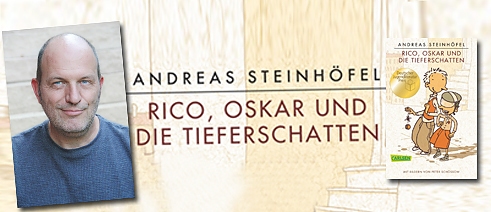Literature for children and young adults
A great variety

Books for young readers constitute an important segment of the German book market. German-language literature for children and young adults is characterized by ambitious themes and thoughtful illustrations.
The German-speaking countries boasts a rich multifaceted tradition in books for children and young adults. This applies not only to content, form and genre, but also to their status on the German book market, which is characterized particularly by many international titles. Of the 73,863 new titles published in Germany in 2014, 8,142 were for children and young adults, school books not included. Literature for children and young adults counts for 11% of book production and 15.8% of annual sales in the overall book trade. Literature for children and young adults is thus one of the most important and high-selling parts of book production – and of children’s culture.
Both authors and publishers devote their attention in particular to the target group of children of baby, pre-school and primary-school age. This has to do with the high estimation of literature specifically for this childhood phase, as well as with private and state sponsored efforts to promote reading among children. Antje Damm has pointed up whole new possibilities for with her books for small children, including Ask me! (2010): poetical acquisition of language and reading skills in book form. Andreas Steinhöfel’s Berlin trilogy Rico und Oskar, written between 2008 and 2014, is considered to be particularly effective children’s literature. Its mixture of social study, situation comedy and a deeply moving friendship between two unusual boys is in the tradition of the big city novel for children. It also appeals to the experience of children living in patchwork families. Currently, authors like Milena Baisch, Martin Baltscheit, Renate Düring, Finn-Ole Heinrich, Salah Naoura and Martina Wildner are writing children’s book that are a success with children, literature teachers and also people from the media culture sections.
Shift in reading age
Books for readers over the age of 12, regarded as young adults’ books, testify to the so-called “all age” phenomenon, i.e., the shift in the reading age to joint target groups aged 13 to adulthood. This phenomenon has been known since Michael Ende’s books Momo (1973) and The Neverending Story (1979). Particularly frequent literary themes are the coming of age motif (Nils Mohl, Es war einmal Indianerland, 2011), the experience of “life on the street” (Jana Scheerer, Mein innerer Elvis, 2010) and the engagement with physical and structural violence (Corinna Antelmann, Der Rabe ist acht, 2014).In Germany, books for children and young adults are often thoughtfully illustrated. They preserve and renew the traditional culture of book illustration, while also offering scope for free art and visualising a lot of information. Among the illustrators admired by experts over the past years are Aljoscha Blau, Stefanie Harjes, Susanne Janssen, Katharina Kuhl, Jonas Lauströer, Kat Menschik, Michael Roher and Einar Turnowski. Among others, Reinhard Kleist succeeded in establishing the genre of the graphic novel as part of young-adult literature with The Boxer (2012).
Knowledge books with an aesthetic design
Many sections of non-fiction have migrated to the digital media. Yet the genre still has potential as regards original artistic and didactic books for children and young people. Some highly aesthetically designed knowledge books, like Dieter Braun’s Wild Animals (2014/15) and journalistic documentations like Mein Opa, sein Holzbein und der Große Krieg (2013) by Nikolaus Nützel are very striking.If you search in contemporary children’s and young-adult literature for typical German themes you will find above all not only National Socialism and the Holocaust (Reiner Engelmann, The Photographer of Auschwitz, 2015) and the division and reunification of Germany (Dorit Linke, Jenseits der blauen Grenze, 2014), but also football, altered family structures and a striking number of books with a philosophical leaning.




